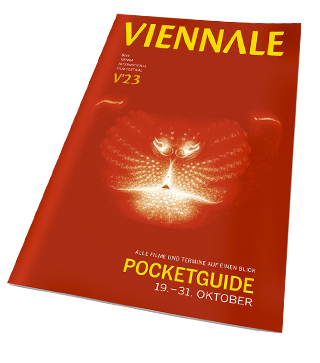A text by Luise Mörke.
Myths without Heroes: Camping du Lac by Eléonore Saintagnan
Camping du Lac by Eléonore Saintagnan is a small film. For one, it’s short: a mere 68 minutes. Further, the plot is confined to what feels like the most minor of worlds, a tranquil campground in the north of France, where inhabitants of semi-permanent trailers adorn their homes with white lace curtains and tend to the front yard after the day’s heat has died down. Here, never-ending vacation and economic precarity become virtually indistinguishable from another, an arrangement that is easily dismissed as petit bourgeois escapism, but in Camping du Lac becomes the site of subdued enchantment.
The plot goes as follows: a woman, played by Saintagnan, finds herself stranded in the middle of Brittany after her Renault breaks down en route to the sea. Because the parts will take a while to arrive, she hitches a tractor ride to a campground and rents out a bungalow. The nearby lake, she learns at mass, supposedly houses a fish of mythical size and powers, which, centuries ago, provided Saint Corentin of Quimper with a self-replenishing supply of food. In a brief medieval interlude, the film tells the legend of Corentin, the hermit: living alone in the forests of central Brittany, he nurtured a particularly close relationship to a fish. Each day, Corentin would carefully cut a small piece from its body, then curb his appetite until the next day, when the fish had regrown to its previous size. But their symbiotic relationship was disrupted when, one day, a soldier followed Corentin into the grotto and greedily cut off more than the fish could handle. The saint succeeded at bringing the fish back to life but thought it best to send it downstream towards the lake, warning him to be weary of humankind forever.
In Camping du Lac, this myth seamlessly blends into the present: one moment, we see Corentin by the side of the stream, setting the fish free; the other, Saintagnan’s character enters the frame in the very same place, skipping from rock to rock a couple of centuries later. Having established this – very cinematic – convergence of different times within the same space, the film’s mood shifts ever so slightly towards the fabulous, reminiscent of Josephine Decker’s camping film Butter on the Latch (2013) without moving towards the latter’s subjective dissolution. In fact, the narrator-as-subject of Camping du Lac is hardly of any importance at all. Akin to the countless transmitters of myth, the story is told through rather than by her.
In what could be a metaphoric image for this kind of filmmaking, we see Saintagnan hold a sonic amplifier into the forest, catching any sound that comes her way. Thus immersed in her surroundings, she does not look at the campground and its inhabitants from the vantage point of condescension, but rather observes the lives of those around her in a way that is similar to how someone without ornithological interest might look at a bird in the woods: there is no end or purpose to it, nothing to be gained from this mutual beholding. We are introduced to lonesome, bluegrass-singing Wayne; “the lady in number seven,” a trans-mom who came for vacation with her young son, never left, and now slaughters chicken for dinner; and stoic Anthony, who gets by on odd jobs, tattooing an elderly neighbor included.
The pleasure of watching Camping du Lac derives from Saintagnan’s ability to subtly defamiliarize what we see: be it through details like a suicidal garden gnome, the way she hones in on an oddly machinic line dance at nighttime, or the convergence of medieval legend and day-to-day life. This dailyness is crucial: the myth of Saint Corentin is not only a familiar story of natural harmony and human hubris, but also one of a miracle that happens over and over again. Each day, the fish is whole again; each day, Corentin returns to it for sustenance, until an unwanted intruder breaks the cycle by wanting too much. The breeding ground for myth, Saintagnan seems to say, is everydayness – chasing chickens, not dragons. At times, the film fails to reel some of its elements into this larger constellation. How are we meant to relate to the totem pole that watches over the campground, visually linked to the gothic INRI outside the church? Why the other allusions to the so-called “wild west,” a wooden buffalo amid a sheep herd and several men dressed in cowboy hats? Of course manifest destiny was a myth too, but one that justified genocide. Why Saintagnan slips its symbols into the French countryside with such nonchalance is puzzling. But perhaps that’s what is bound to happen if one listens in even on a random snippet of Europe, itself a myth forever reliant on its other.

In unserem erstmals stattfindenden VIENNALE YOUNG CRITICS' CIRCLE arbeitet eine Gruppe junger, internationaler Filmkritiker:innen unter editorischer und organisatorischer Begleitung von Autor und Filmkritiker Patrick Holzapfel an einigen Texten, die sich mit dem Programm des diesjährigen Festivals auseinandersetzen.

CAMPING DU LAC
Éléonore Saintagnan | Belgien, Frankreich | 69 min | OmeU
Screenings am
Mittwoch, 25. Oktober: 18.30 Uhr - Metro, Historischer Saal
Donnerstag, 26. Oktober: 16.00 Uhr - Urania
In Anwesenheit von Éléonore Saintagnan.

